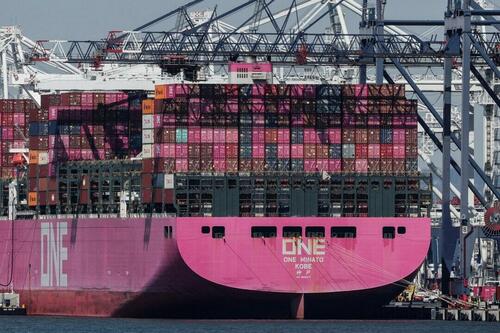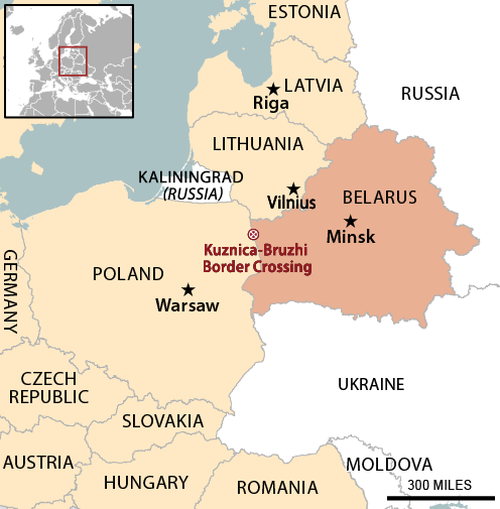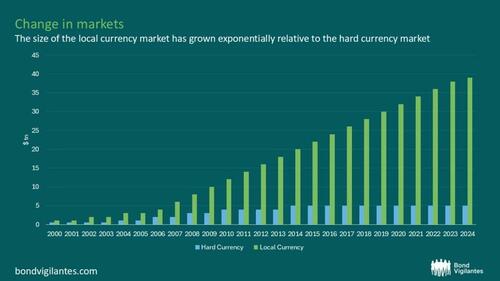Make America Great, Secure, And Maritime Again

Authored by William Cahill & Jacqueline Deal via RealClearWire,
It is 2035, and an array of new and revitalized cities along America’s coastlines and waterways are arising to rekindle industry. Leveraging the nation’s incredible maritime geography, these urban centers feature advanced shipyards, manufacturing hubs, cultural centers, and luxury real estate, all organized around the energy and logistical infrastructure of the future.
Imagine Detroit reborn: small, modular nuclear reactors power a humming, cutting-edge shipbuilding industry along with a range of factories connected by air, sea, and land, as advanced drones ferry cargo between them. This revived manufacturing hub employs someone from nearly every extended family, and the abundant clean energy fueling it in turn underpins high-quality education, healthcare, and public transport services for residents. Detroit leads the reindustrialization of the U.S. economy, amplifying manufacturing independence, resilience, and national security.
This future is within reach; the raw material exists to support many more maritime boomtowns, combining new logistics modes with living well on America’s ocean coasts and the Great Lakes and rivers irrigating the Midwest. Executing a strategy to achieve this potential starts with identifying which aspects of business as usual must evolve.
Moving cargo on the water is by far the most efficient means of transportation and accounts for 80 percent of global trade. But the United States can’t use its abundant coastlines and rivers to reinvigorate domestic supply chains—or, if necessary, to sustain a wartime economy—largely because it makes and crews so few commercial ships. Last year, the United States delivered zero, while China delivered over 900. This deficit poses a massive and growing risk to national competitiveness and security.
A perfect storm is brewing. As China seeks to dominate critical markets and supply chains, the United States “protected” its shipbuilding and maritime logistical capabilities nearly out of existence, while allowing its leading research labs and firms to send their know-how to the adversary. Now, China has become the world’s leading manufacturer of everything from ships to micro-electronics and missiles, and critical U.S. infrastructure is in its crosshairs.
Warding off this threat depends on building maritime freedom cities.
These new coastal population, technology, and logistical hubs will provide both demand and capabilities for the U.S. industrial base, deepen U.S. resilience, and complicate adversary targeting. Fortunately, this solution is emergent.
Even before the One Big Beautiful Bill’s passage, President Trump had steered the ship of state toward a mix of tariffs, tax incentives, and regulatory relief to help American manufacturers. The bill advances this agenda and includes a down payment on the Defense Department’s Golden Dome initiative to protect the homeland from Chinese missiles.
The next step is to build the freedom cities the President pitched during his last campaign to “reopen the frontier, reignite American imagination, [and provide] … a new shot at home ownership and in fact, the American dream.” In one speech, then-candidate Trump linked America’s primary geopolitical threat with deindustrialization and social malaise.
The administration is now positioned to address these interlinked challenges by designating locations on all three U.S. coasts (Atlantic, Pacific, and Gulf of America), as well as cities around the Great Lakes and its tributaries, tax-free air and maritime opportunity zones.
Each city could generate sustainable, growth-oriented demand for advanced marine vessels, many of which could support dual-use capabilities and infrastructure.
Such economic clusters would usher in an era of maritime innovation, strengthening the allied maritime industrial base.
This would bring America off the bench and provide opportunities for thoughtful integration with partners such as Japan and South Korea.
Meanwhile, representatives of hostile foreign adversaries such as China should be excluded from relevant labs and start-ups. Long-overdue investments in research security and counterintelligence must be made so that American research and development doesn’t continue to help Beijing tighten its hammerlock over global maritime trade.
Life on the water in support of hands-on industries has inherent attraction. If you build it, they will come and thereby contribute to the great rebuilding effort that the President has already begun.
To the relief and excitement of Americans—and the disappointment of our adversaries—America is poised to return to the fundamental business of industry, homeland defense, and maritime innovation.
Views expressed in this article are opinions of the author and do not necessarily reflect the views of ZeroHedge.
Loading recommendations…
Recent Top Stories
Sorry, we couldn't find any posts. Please try a different search.










